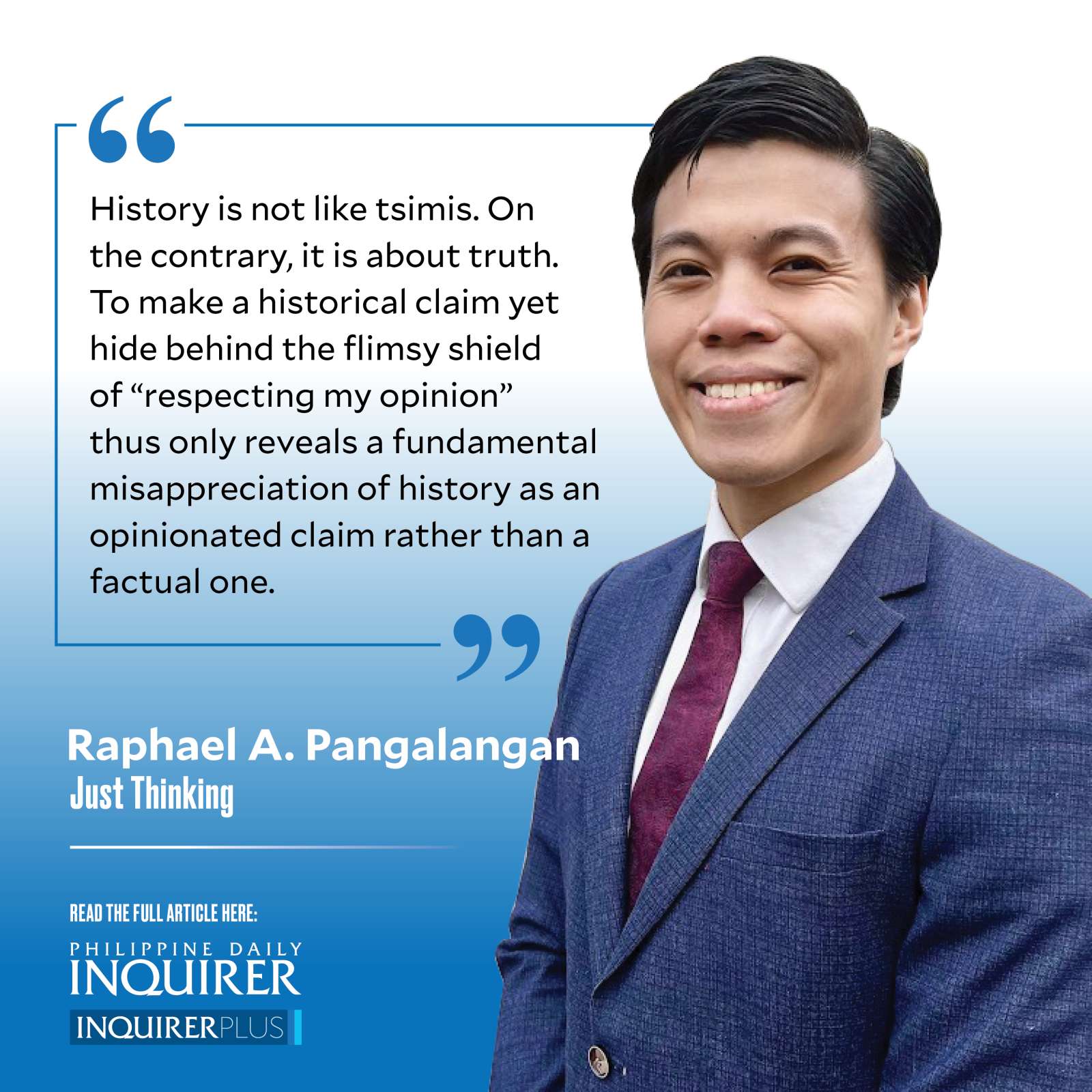Freedom for the ‘tsismis’ we hate?

Not all Marcosian apologists are made equal. Indeed, there are two kinds.
One denies that human rights violations occurred during martial law, ironically invoking Ferdinand Marcos Sr.’s defense principles of due process and the presumption of innocence. The other acknowledges the horrors of martial law but justifies them as but a small price to pay for the Philippines’ so-called “golden era.”
Which is worse, you may ask? Well, that would depend on the standard of measurement. The first is epistemological—a matter of knowledge. The second is ethical—a matter of morals.
One denies the objective truth, while the other accepts it and obscures it in subjectivity and (dis)value judgment. The former would fail a test in history, but not necessarily the test of the heavens. But, on the other hand, the latter may very well get into Cambridge, though not Canaan.
(Notably, the case may be made that there is a third hybrid category of apologists. One who justifies Marcosian atrocities in one breath and then denies their very existence in the next. Pledging fealty to neither evidence nor ethics, this walking, talking case of cognitive dissonance is unfortunately well within the pale of imagination.)
At the heart of the apologists’ divergence lies the distinction between fact and opinion. In a 2018 research piece entitled “Marcosian Atrocities: Historical Revisionism and the Legal Constraints on Forgetting,” Gemmo Fernandez, Ross Tugade, and I—former UP Law classmates turned fellow human rights advocates—outline how courts of law have doctrinized the distinction between fact and opinion through what defamation lawyers commonly refer to as—you guessed it!—the “fact/opinion distinction.”
In Gertz v. Welch, the US Supreme Court pronounced that “there is no such thing as a false idea,” however pernicious it may be. In Borjal v. Court of Appeals, the Philippine Supreme Court similarly ruled that a false allegation of fact may be actionable, but an expression of opinion reasonably inferred from the facts is not. But for our Marcosian context, the most relevant use of the fact/opinion distinction was by the German Constitutional Court in the Auschwitz Lie case. There, the Court upheld the constitutionality of the Holocaust denial law—a criminal law penalizing the denial of the human rights atrocities committed by Nazi Germany—and ruled that false statements of fact denying the Holocaust did not fall within the protective ambit of free expression.
At the risk of oversimplification, the US, Philippine, and German high courts echo the old Moynihan quote: “You are entitled to your opinion, but not to your own facts.” But why the difference in treatment between fact and opinion in the first place? The answer is fairly simple, though hardly straightforward: Because, unlike opinions, facts are subject to verification.
There is no such thing as a false opinion. Only bad ones. Facts, on the other hand, may be pitted against the standard of truth. They may be wrong, or they may be right. It is this element of verifiability that distinguishes fact from opinion. And it is that same element that serves as the foundation for history.
History is not like tsimis. On the contrary, it is about truth. To make a historical claim yet hide behind the flimsy shield of “respecting my opinion” thus only reveals a fundamental misappreciation of history as an opinionated claim rather than a factual one.
But perhaps the reason history is confused for tsimis is not only a matter of factual or legal ignorance but a matter of insecurity. It is not that truth doesn’t matter to the historical denialist. After all, denialists advance a factual representation they claim is indeed true. Rather, those who conflate history with an opinion are simply too proud to bear the thought of a world where they can be proven wrong. By taking a factual jab and then raising the shield of opinion, the apologist attempts to rig the game’s rules so that their claim may never be disproven.
Unfortunately for them, life doesn’t quite work that way. A lie said a thousand times does not make it true.
History is not just a matter of opinion. And that’s a fact!
——————
thinkjustly@gmail.com
















